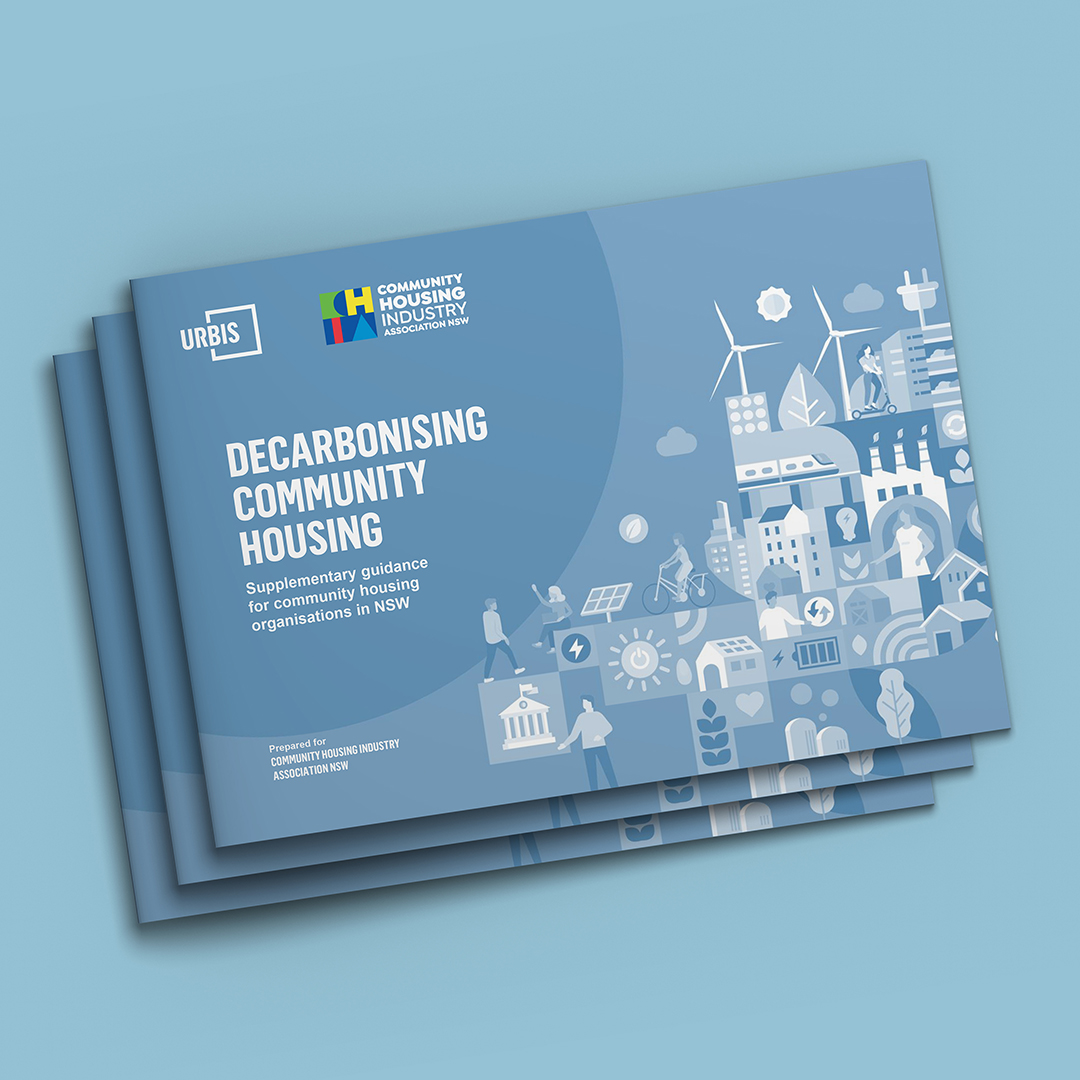Urbis was engaged by the Community Housing Industry Association of NSW to support community housing organisations in their transition to net zero and in their decarbonisation pathways. Urbis delivered two key reports – Decarbonising Community Housing: Guidance for Community Housing Organisations, and Decarbonising Social Housing: Delivering on NSW’s Climate Ambition.
The overarching key project aims were to provide the 94 community housing provider members in NSW with technical guidance and advice on how to cost-effectively decarbonise their properties and portfolios, and to outline the scale, cost and benefits of the sector net zero challenge and the support required by government to enable decarbonisation of community housing dwellings across NSW.
Throughout the project, over 46,000 community housing properties were analysed across three key dwelling types (House, Apartment, Townhouse), with 17 climate zones, and a total of 1,836 different architypes identified for the analysis. 9 key architypes were assessed in detail, and 3 decarbonisation intervention bundles were developed – Basic, Modest and Climate-Ready.
The decarbonisation intervention bundles provide an indication of the potential costs, carbon emissions savings, and benefits of bill savings for the tenants per property architype.
Portfolio level carbon emission reduction potential was calculated based on the level of interventions, with the economic activation potential, social value, public health savings, and contribution towards the NSW Governments net zero targets. Key recommendations were provided to the government to accelerate and enable the decarbonisation and net zero targets of the community housing sector of NSW.
A truly One Urbis project – combining Urbis’ expertise across Sustainability, Net Zero and Decarbonisation, Economics & Property, Engagement, Heritage, Planning, Economics and Social Advisory, and Smart and Sustainable Places.
With New South Wales currently undergoing a dynamic phase of energy transition, emissions reductions, and energy efficiency improvements – social housing and community housing providers are not exempt to this energy transition, and play a major role in ensuring vulnerable and lower-income households receive the improved health, well-being, liveability, and financial benefits that decarbonisation can achieve.
“It has been a pleasure to work on such a meaningful and impactful project with CHIA NSW and their community housing members. We hope that this project will support the community housing providers with decarbonisation guidance, funding and finance options, and by identifying the wider community and social benefits of decarbonisation and retrofits, assist in accelerating the net zero transition of the sector.
Brenton Reynolds
Director

We look forward to working alongside CHIA NSW in the new year disseminating the key findings of these reports, and continuing to build awareness and highlighting the importance of decarbonisation across the community sector sector.
